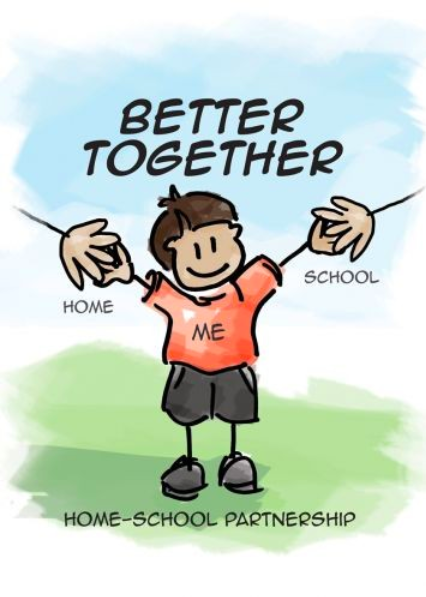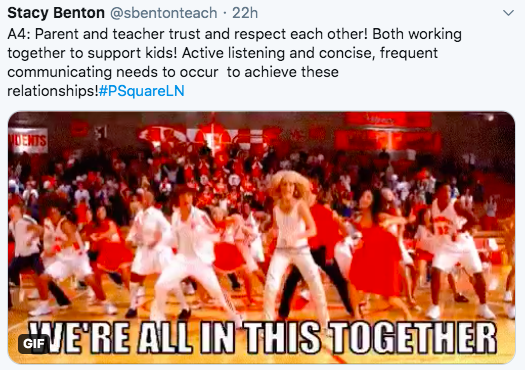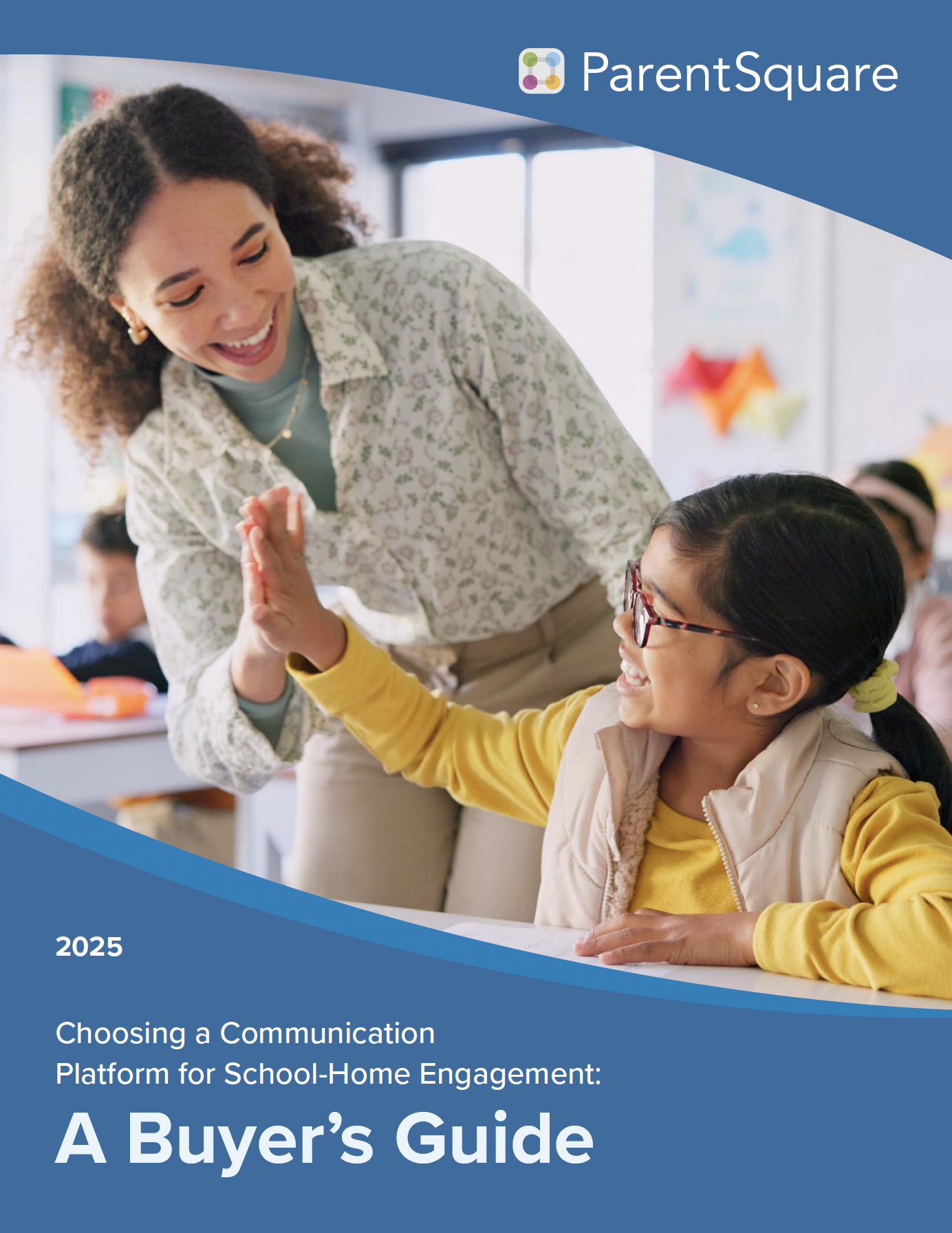This post originally appeared on our ParentSquare Learning Network blog on July 24, 2020.
Curated by Zareena Zaidi at ParentSquare
As we navigate uncharted territory and a truly unconventional back-to-school season, partnering with parents and having an open dialogue will play a major role in student success. What are some ways we can still build strong school-home partnerships, when starting a new class with no or limited face-to-face interaction?
Check out the highlights from our Learning Network Twitter Chat on July 22 to see other educators’ thoughts, opinions and plans for kicking off the 2020-21 school year.
Thank you to our Director of Community, Rachelle Dene Poth (@rdene915) for moderating this chat! Participants joined in with the hashtag #PSquareLN. Access the full chat here!
Q1: How Might We Create Connections With Families at the Start of the School Year, When Face-To-Face Isn’t an Option?
“Create equitable tools that encourage feedback and build upon communication.” — David Lockett, @DavidJLockett
“Make a welcome video so students and parent can see your face without a mask and know expectations” — Nathan Stevens, @nathan_stevens
“As I do every year, send personal email. I send Google Classroom invite and link to my class website. This year I might send a video welcome.” ROBERTS, @tanya_ottgrl
“I’m thinking about creating a SHORT ‘back to school night’ video, embed it into a google form and include questions where parents describe the strengths and weaknesses of their children… Give parents a two week window #EinsteinFellows19 —Mary Lou O’Donnell, @ML_ODonnell
Response: “Yes, I have created a get to know your teacher video and created a survey to learn more about students as learners, individuals, that helps drive my instruction! https://docs.google.com/forms/d/e/1FAIpQLSfx8C1RlidEaDs-jDfeCn2ncOUW-FJfeaArjyzKx3UbxpDRQA/viewform” — Denise Wright, @DenisecWright
“Virtual class meetings or round tables for parents have been tossed around. Lots of communication via school comm apps. Visibility into student learning parent access to LMS & others. Also in person with masks is an option in our area. At least at this point!” — Coach Burnz, @coachburnz
Q2: What Are Your Best Practices for Communicating With Families? Share Some Examples!
“Starting with a survey at the beginning of the year to learn about them, preferences for communication, access to devices” — Rachelle Dene Poth, @rdene915
“Emails, texts, phone calls, and @ParentSquare (ParentSquare has a way to message all parents at once or individual, it can also be used to set up time slots, post surveys and links to calendars) — Amy Moran, @amoran4
“Consistency + letting them know you care about the whole family. Getting to know them has always been a priority… I got away from paper packets years ago and now make it a fun Google Form for parents and Ss to fill out! Responses are always heartfelt and helpful! — Jillian DuBois, @JillDuBois22
“Setting up digital conferencing or social distancing conversations so Ss families & myself can just talk. I really like these times for everyone to focus on #SEL , community and filling our hearts. Content will follow if we’re healthy and well” — J Hamilton, @mrmakemathsense
“I use a our family website where put updates, weekly videos and pick 2 kids each week to write our weekly updates, also zoom & @Flipgrid. Here’s an example of our weekly video- do one each week 😉 https://gopro.com/v/G1gGND3GZaeMq — Melisa Hayes, @hayes_melisa
“Know what your families need: at-home social/communication supports, academic updates, schoolwork examples, supplemental resources, explanation of resources, etc. Sometimes it’s hard to articulate, so look for what gets the positive reactions and follow up Qs!” — Monica (Barc) McGuire, @McGuireLearning
Q3: What Are Some Things To Avoid When It Comes To Communicating With Families?
“Negativity and too much information: Right now we as well as families need reassurance!” — Amy Moran, @amoran4
“Don’t swamp parents with multiple emails/posts a day. It is overwhelming and stressful to them. Try to condense it into one email as much as possible.” — Lori Miller, @MillerTime3rd
“Avoid giving to many tasks, being inconsistent with communicating, not providing feedback!” — Dustin, M.Ed, @DustinPearson2
“The biggest complaint I hear from Ps is that often there are too many things coming in from to many directions. Too much ‘where do I go to find this info’. As I said before keep it simple, all info in one place.” — Coach Burnz, @CoachBurnz
“Avoid only communicating when there is a problem. Call when things are going great. Call for a check in with parents, to see how they are doing or how you can help. We don’t build relationships from perpetual negative interactions. Reach out with positives, too!” — Dawn Harris, Ed.S., @DHarrisEdS
“I always think of the saying ‘less is more’, as we do not want to overwhelm families with information. We need to communicate simply, yet effectively!” — Nicole Anderson, @MissAndersonVDV
“Avoid negativity & set standards and rules. We need safety & trust to build positivity and teamwork cooperation for everyone to figure this out as we go.” — J Hamilton, @mrmakemathsense
Q4: What Does Your Ideal Parent-Educator Relationship Look Like, and How Can You Help Make It a Reality?

“Teachers and parents should work together to help the student/child reach their fullest potential. Effective communication is a must!” — Victoria S, @vms10_EME
“My ideal parent/edu relationship looks like: true partnership, where all parties are invested in success of the student, work together to make it happen, and feel they are valued & heard. To get to that, shift the mindset from expert to partner right at the start.” — Laura Steinbrink, @SteinbrinkLaura
“Tough Q! You just have to meet people where they are. I would start by putting myself out there as available (chat feature on parentsquare is great) and letting people set the tone for the amount of info or communication needed. We’ve got to help each other out!” — Coach Burnz, @coachburnz
“Respect that all stakeholders, parent, child and teacher, are vested in the student reaching best potential with self-worth & confidence. Being empathetic to this relationship will reap a its reward. Understanding there is more going on behind the scenes than school” — ROBERTS, @tanya_ottgrl
“Oh, the joy of parent-teacher relationships! 😉 We obviously want to partner with our parents and I think that when we are open and honest with them, it can be hard. We want them to ultimately see that we love their children. Vulnerability! — Jess Painter, @JessPainter7

Thank you to all who shared their opinions, advice, and reflections for this Twitter Chat!







